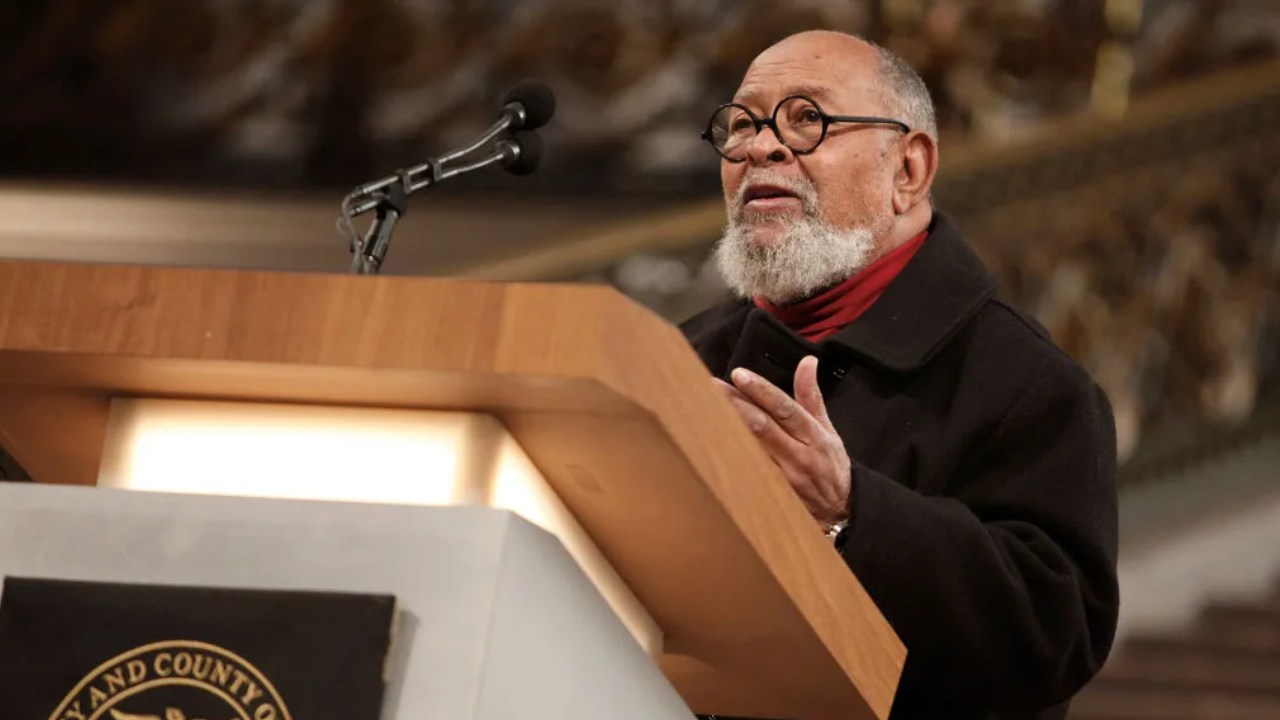Before his release on April 28 from San Quentin Prison, John Johnson anxiously watched his parole date grow nearer, praying he would make it out of the prison before COVID-19 made its way in.
"I knew it was a matter of time," Johnson said in Wednesday in Oakland, more than two months since he was released from the prison.
Though Johnson made it out COVID free, hundreds of his fellow inmates didn't fare as well. In the last 12 days, the prison went from 16 positive cases of the virus to currently 456 cases, with more than 47 staff also testing positive. The numbers more than doubled in the last weekend.
Johnson had been housed in the prison's north block, where he anxiously wondered if the facility's ventilation system was original to the prison which opened in 1852 and is the state's oldest prison.
"We knew that San Quentin prison had all the right conditions," Johnson said, "that if a case of COVID-19 came there that it would spread like wildfires."
In a newly released memo, a group of doctors said it warned state officials on June 13th that the prison was like kindling for the virus wildlife that Johnson had predicted. The report said the prison's antiquated facilities, overcrowding and insufficient medical staff made it vulnerable to the spread of the virus.
Local
Activists said the match that lit that fire was the transfer of a group of 121 inmates to San Quentin from Chino State Prison which had around a dozen cases of the virus. Activists claimed the California Department of Corrections failed to test the inmates for the virus before the transfer. Soon after, the number of cases in San Quentin began to rise -- and then explode.
Johnson said the crowded conditions made it impossible to social distance inside the facility. He said while he was there, the prison issued him a bottle of hand sanitizer. He said he's spoken to inmates who've told him it was the last hand sanitizer issued.
"I get phone calls all the time from guys in there telling me they're scared," Johnson said.
The California Department of Corrections wouldn't grant an interview but instead issued a statement, saying it has so far test 1,332 inmates in San Quentin at a "testing rate of 309 per 1000, which is almost five times the state and national testing rates." The statement said the department has worked tirelessly to protect prisoners and staff -- by implementing increased safety measures. Nearly 2000 inmates across the state prison system have tested positive for the virus.
Maria Tamyo, whose 22-year old son Eric is an inmate in San Quentin, said her son began exhibiting virus-like symptoms last week and was only tested on Wednesday. He told her the prison hadn't been cleaning cells and some staff weren't wearing masks.
"He's very concerned," Tamyo said, "because I think the people are getting sick and the numbers are growing up."
Activists have demanded the department of corrections reduce the number of inmates at San Quentin by half, improve testing and to clean all the prison's ventilation systems. State Sen. Scott Weiner said the Senate Public Safety Committee would hold a hearing on the transfer of the inmates from Chino on July 1.
“The outbreak at San Quentin is at once tragic, predictable and unacceptable" Weiner said in a statement.
Johnson shook his head at the thought of his time in the prison which he said operates at 121 percent capacity, making it impossible to social distance. He said it was a race against time to get out -- the last 20 days felt like sitting on the tracks before a slow moving train.
"Prior to me paroling," Johnson said, "I lived with the fear constantly of COVID-19 coming to San Quentin."



